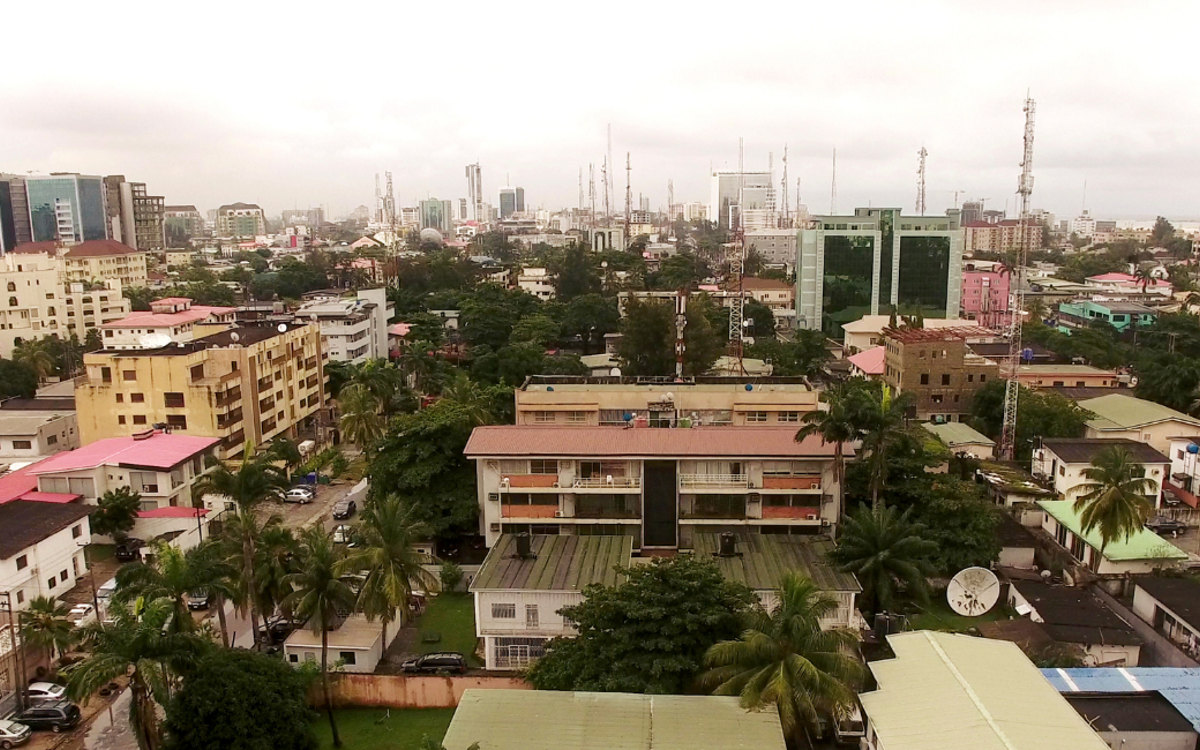By Doris Akachukwu

As a researcher committed to battling environmental degradation in Nigeria's major oil states, Mrs Doris Akachukwu knows that her work cannot stop at publications and book chapters. She must translate knowledge into tangible solutions to improve the lives of heavily affected people, and mediate the intensifying impacts of oil and gas exploitation on local communities and ecosystems.
“I am from an oil producing community, and we are familiar with the restiveness in these areas,” Doris explains. “The youth think so many things have gone wrong in their communities. They have lost their farmlands and there are no jobs, and the oil industry only employs very few of them.”
Although she is based in Michael Okpara University of Agricuture Umudike (MOUAU) in Abia State, Doris chose to conduct her research in Imo State (Ohaji/Egbema), where many oil industries indulge in gas flaring activities.

Imo is one of nine major oil states in the country (alongside Abia, Akwa-Ibom, Anambra, Bayelsa, Edo, Lagos, Ondo and Rivers) which saw decades of intense gas flaring – the practice of burning the by-products of gas and oil production – wreak havoc on the land. In addition to exacerbating climate change, gas flaring leaks toxins into soil and water.
This slow poisoning of the earth has degraded lands that once produced food for thousands, and it’s now common to find farmlands next to flare sites that have been left abandoned and uncultivated.
“How have soils and food been impacted? What can be done to protect people?” Doris reflects. “These are the things that propelled me into the research.”
Healing poisoned land with nature
In search of answers, Doris acquired a CIRCLE Fellowship to conduct research at the University of Ibadan and undertake an in-depth investigation into the impacts of gas flaring on agriculture in Imo state.
“Upon entering the affected community, you see a different outlook altogether,” Doris recalls. “The roofs are rusted, and even some of the artworks are worn out. We noticed soot on the leaves of plants, which inhibits photosynthesis – and the plants invariably don’t grow well.”
Along with her host collaborators, Doris produced an innovative, nature-based solution to protect those bearing the brunt of the environmental damage. Drawing from her expertise in biochemistry, she discovered that biochar – an organic product that results from burning biomass – was capable of absorbing heavy metals in the soil. It also seemed to improve the mineral composition of vegetables cultivated in the contaminated soils.
If scaled, these findings have significant implications for agriculture and food security, particularly for farmlands in eastern Nigeria, where vegetable consumption is very high and sales of crops from rural to urban areas generates income for farmers.
Fortunately, there is a ready source of biochar. Doris explains that, “oil palm bunches that are being thrown away or used to make firewood can actually be used to make biochar and applied to the soil, so much so that the lands farmers are leaving uncultivated can now be cultivated and used for gainful agricultural opportunities.”
With support from CIRCLE’s research uptake fund, Doris assembled a team of field researchers and extension workers from the local agricultural development programme. Together, they travelled across five communities living adjacent to flare sites on a mission to raise awareness about the potential of biochar.


Many villagers were initially resistant to Doris and her team, following repeated incidences of research exercises which failed to result in significant changes or impact. But with great patience, empathy, and the help of local translators, Doris did not take long to convince community farmers of the remediating properties of biochar.
Doris led on the preparation of two biochar-making drums which were subsequently donated to the villagers. Her team also conducted field demonstrations on the simple production and utilisation process of the material.

Many villagers have since formed a local cooperative to begin producing and using biochar. Building off its initial successes, Doris’ project was replicated in five communities in her study site in Imo State, where local agricultural extension workers were eager to deliver the initiative to locals and improve the integration of technology into their farming exercises.
Using research to improve lives
Today, Doris is a lecturer in the Department of Biochemistry at MOUAU. She is building upon her CIRCLE research with a new study on the biochemistry of fish species affected by oil and gas flaring, while also working to extend her biochar research to cover staple crops such as yam and cassava.
“Being involved in climate change research through CIRCLE, I learned so much and saw how much I’ve developed, and that motivates me,” Doris reflects. Through her work, Doris hopes to help local communities become more aware of environmental and climate crises and empowered to act.
“I believe that research is only useful when it is able to change somebody’s life, to make it better than it was before,” she says. “As a researcher, I’m not just satisfied by making publications and book chapters. I want to come up with ideas and outputs that can improve the lives of people who are using the end products of my research.”

The CIRCLE Programme was funded by the UK Foreign, Commonwealth and Development Office (FCDO), led by the Association of Commonwealth Universities and delivered in partnership with the African Academy of Sciences (AAS), Vitae UK and the Natural Resources Institute (NRI) of the University of Greenwich.
The CIRCLE programme works to strengthen climate change research within sub-Saharan Africa through an innovative dual approach. The CIRCLE Visiting Fellowships Programme supported 97 outstanding African researchers to undertake research into local climate impacts, while the CIRCLE Institutional Strengthening Programme worked with 31 universities across 10 countries to improve institutional capacity to support and promote quality research.
